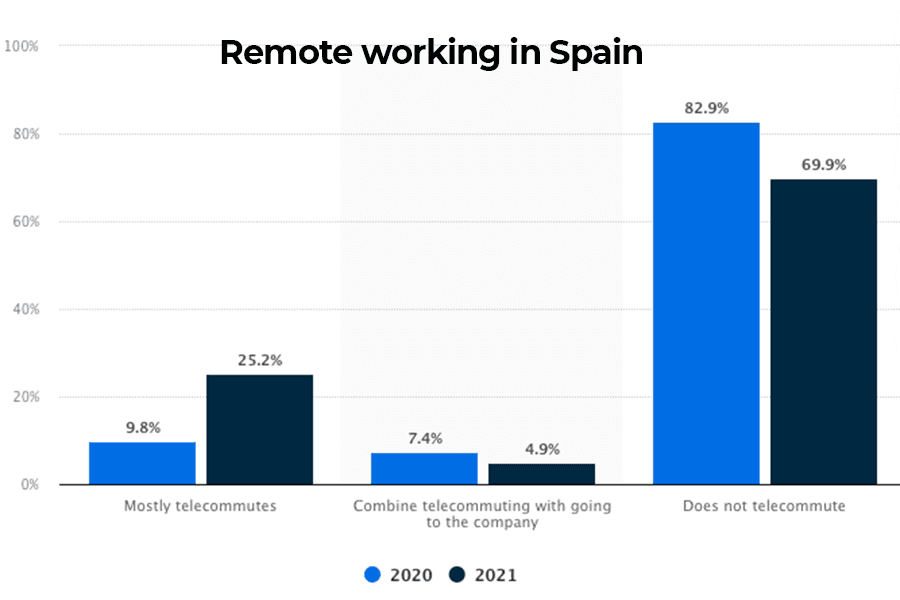Spain
The Spanish government has proposed a €50m project to help companies trial a 4 day work week with minimal risk.
4 Day Work Week in Spain
Workers in Spain typically work a 5 day work week. In 2021, however, the Spanish government agreed to invest 50 million euros (the equivalent of $60 million) into a three-year, 4 day work week trial program.
Approximately 200 companies and 3,000-6,000 employees are expected to participate. Employees will work 32 hours a week without pay reduction. The country’s government will cover 100% of the companies’ costs the first year, 50% the second year, and 33% during the final year of the trial.
Would you like a 4 day work week?
Working Hours in Spain
On average, employees in Spain work longer hours than many of their European neighbors. Although working hours vary by occupation, employees in Spain work around 40 hours per week.
According to Spanish labor laws, the maximum amount of time an employee can be expected to work is 9 hours per day. On a weekly basis, the maximum hours an employee can average per week is 40.
Typically, the workday in Spain is broken into two parts, divided by a siesta. The day begins at around 8:30 or 9 in the morning and goes until around 1:30, when the siesta starts. The workday then continues from around 4:30 or 5 until 8 PM.
Vacation Policy in Spain
Although the annual paid leave in Spain varies by company, according to the law, an employee must receive at least thirty days per year, or 2.5 days per month worked. Most people in Spain choose to take their vacation in the late summer months (July through September). August being the most popular month.
At the end of the year, any unused vacation can’t be cashed out unless it was part of the employment contract. Additionally, unused vacation days expire December 31st, and generally can’t be rolled over year to year, unless the employer permits.
Employees in Spain also enjoy 14 paid holidays per year.
Part-Time Working in Spain
As of mid-2022, the number of part time workers in Spain was about 2.6 million out of a total of 20.5 million employed people.
The majority of part time workers in Spain are women. Although historically women have comprised around 45% of the total workforce, they make up around 72% of Spain’s part time workers.
Remote Working in Spain
Spain has been more hesitant to transition to remote work than many countries. In 2020, 83% of professionals were required to come into the office daily. But in 2021, that number decreased to 69.9%, indicating a shift to remote work.
As of the third quarter of 2021, the region in Spain with the largest number of telecommuters was the Community of Madrid, comprising about 16.6% of the total remote workforce in the country.
